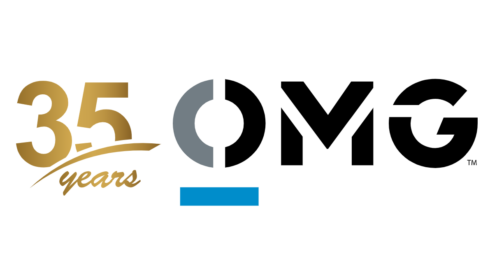

Thirty-five years in the past, a gaggle of technologists got here collectively to help an object-oriented GUI from HP referred to as New Wave. Invoice Hoffman remembers: “Again then, there weren’t lots of people accustomed to OO improvement.”
It turned out to be an extended run than he anticipated, as a result of by displaying they might shepherd tasks alongside by bringing folks to the desk and getting settlement on what would grow to be requirements, The Object Administration Group was based, and this yr is celebrating 35 years of existence.
Since that first effort, the consortium has led the best way within the creation of such extensively adopted applied sciences as CORBA, UML and SysML (with V2 coming a while this yr) and the Unified Structure Framework (UAF), all the best way to at this time’s Synthetic Intelligence Platform Activity Drive and System Assurance Platform Activity Drive.
CORBA has been massively profitable, having been embraced by protection companies in america, Canada, the UK, Japan and NATO. Hoffman mentioned “It’s working in issues reminiscent of the newest class of Navy destroyers to NASA’s house shuttle to Hoover Dam. It’s simply throughout.”
How have the tasks the consortium helps information stay helpful for therefore lengthy? Hoffman defined, “The factor is, we future-proof our specs in order that the minute the Board of Administrators approves one, we begin a revision activity pressure and we try this for 3 causes. Often we didn’t get all the things within the spec the primary pass-through, second there’s most likely stuff that’s damaged, and third the necessities could have modified between once we began and once we completed. However what that does is the revision activity pressure permits the folks which might be within the spec to have a option to decide the way forward for it.”
That method, he added, folks may be assured that in the event that they spend money on these merchandise or functions, they gained’t “get stiffed” down the street. Additional, the consortium was based as a not-for-profit group as a result of they didn’t wish to be purchased out and have the work co-opted.
And at last, the group made certain they’d good insurance policies relating to mental property, so firms might come and sit with their rivals and focus on frequent issues with out having any antitrust points come up, he mentioned.
“It’s tremendous necessary to the bigger guys in addition to to the small guys which have one thing they assume is exclusive,” he mentioned. “So we discovered a option to enable folks to take a seat across the desk and really actively work collectively. And I feel that’s been a part of the explanation why we’ve been profitable.”
With all the world buzzing about synthetic intelligence, Hoffman identified that there was an AI requirements group at OMG for the final 5 years. Now, he mentioned, “We’ve obtained some exercise the place it seems like there could also be a regular beginning with OMG on AI, however we’ve additionally obtained what we name a cross-consortia program going the place we’re taking what’s happening within the requirements improvement a part of OMG and including that to what’s happening with the Augmented Actuality Group that now we have and including that to what’s happening with the (4-year-old) Digital Twin Consortium, (which is the quickest rising group in OMG). So we’re pulling all that stuff collectively underneath one frequent cross-consortia.”
And what about that Object Administration Group title?
“The primary particular person I ever heard consult with us as Oh My God was Bob Metcalfe,” Hoffman recalled. “Bob offered to us again across the Nineteen Nineties or early 2000s, and I bear in mind coming as much as him and he goes, ‘I by no means heard of this group referred to as omg.org. All I might consider was Oh My God.’
“And that was even earlier than the 14-year-old ladies obtained their arms on it. I believed it was a hell of a praise,” Hoffman mentioned. “, when one of many creators of the Ethernet needs to make enjoyable of it, meaning we made it.”